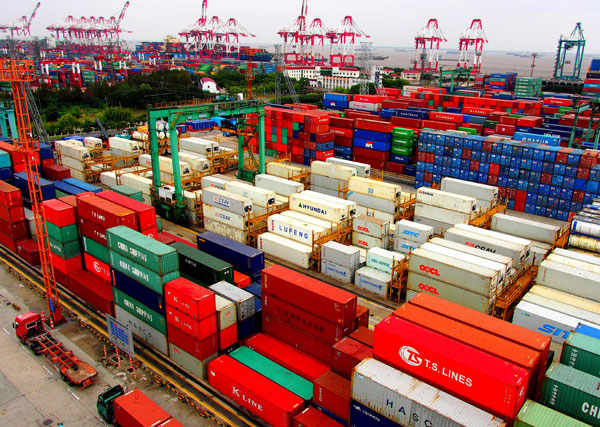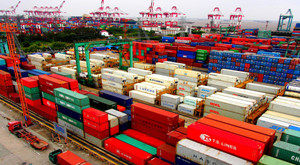China's foreign trade weathers storm of fluctuation
Xinhua, December 26, 2013 Adjust font size:
 |
|
Containers pile up at Waigaoqiao Port in the Shanghai Free Trade Zone. [Photo/ Xinhua] |
After a roller-coaster year, China's foreign trade may yet reach its 8-percent growth target by the end of 2013. Exporters remain optimistic.
A survey of over 500 Chinese exporters in October by Global Sources, a Hong Kong media company, shows two thirds of them looking to increase revenue in the first half of 2014.
Hardware and automotive parts suppliers are the most optimistic, with nearly 75 percent anticipating higher export revenues in the first half of next year.
The feelings are in line with customs statistics showing a 9.3 percent increase in trade volume in November and an all-time export high of $202 billion, up 12.7 percent from the previous year.
The increase brought growth in the first 11 months of 2013 to 7.7 percent, close to the 8 percent target set at the beginning of the year.
During a monthly press conference, Ministry of Commerce (MOC) spokesman Shen Danyang attributed the fast growth to three factors: government policies to stabilize expansion; a low base number in November 2012; and recovery in traditional markets.
China will continue opening up in 2014 and traditional export strengths will be retained while avenues are explored. Shen added that exporters should not be too optimistic, even though exports will continue to growth rapidly.
Most volatile year
Shen's caution does not come out of nowhere. Overseas trade has just gone through a most Mercurial year in two decades.
The increase during January to March was a stunning 13 percent, but dropped to under 5 percent in the second quarter. Foreign trade rose only 0.4 percent in May, and June saw the first decrease in 17 months.
Moderate growth in July and August was followed by another negative number in September, then a 5.6 percent rebound in October.
"The fluctuation comes from several sources, which include the uncertain recovery in global markets, and carry trades which greatly distort the customs figures," explained Xiao Yaofei, a professor with Guangdong University of Foreign Studies.


